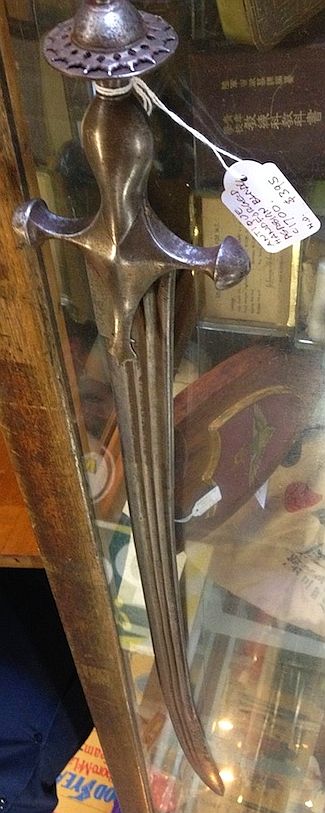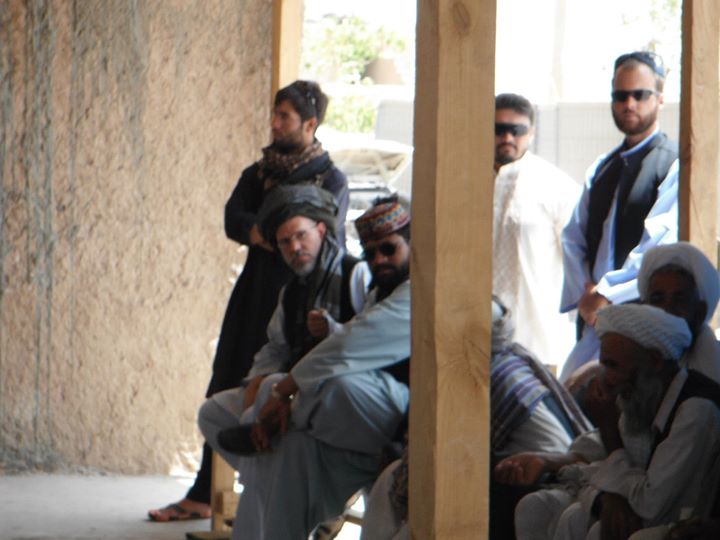Posts: 578 Location: Georgia
Thu 13 Mar, 2014 12:48 pm
Yeah, given the crossroads that was the general area of Afghanistan/Pakistan/Western India, it would be absolutely no wonder to find plenty of variety in the blades carried there. However, the pulwar is definitely a 'trademark' of warriors from Afghanistan and Pakistan in any number of photos.
Here's one from Wikipedia (guy in lighter coat sitting near the middle, holding it vertically:
[ Linked Image ]
Even in this picture, the guy sitting right in the middle has a more traditional shamshir in his lap rather than another pulwar or talwar. You can also see that many of them are wearing (most likely) pesh-kabz knives through their belts. One of those kneeling at the left of the picture has a long sheathed sword or knife; this may be a classic Khyber or charay knife, many of which reached sword proportions.

